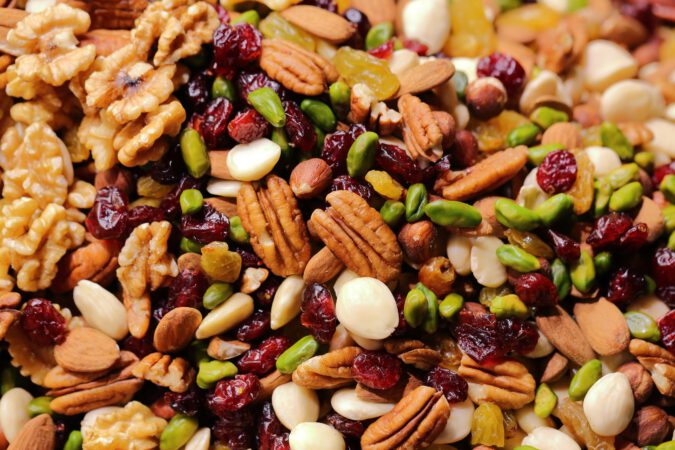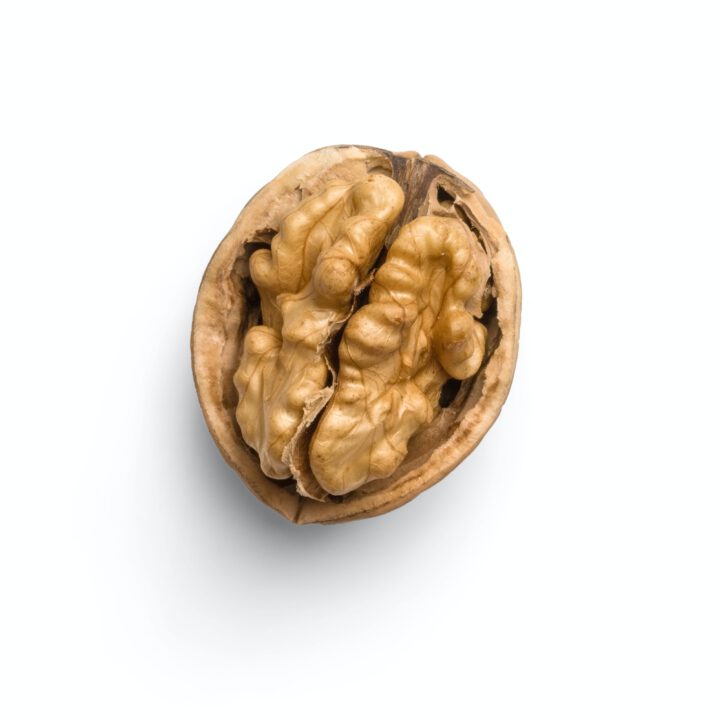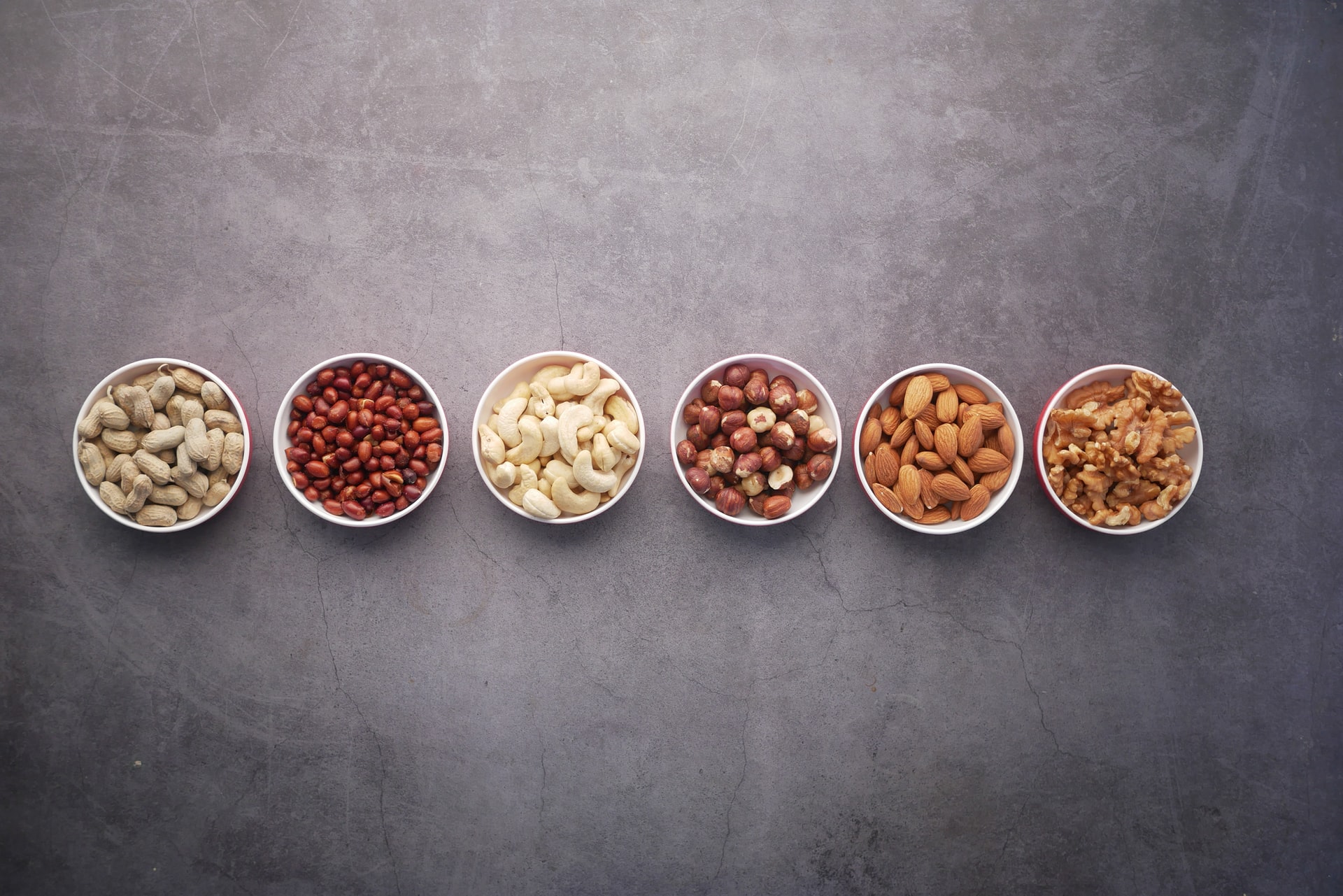Many foods have everything the body, and especially the brain, needs to work well and stay healthy.
First and foremost, nuts can be mentioned in terms of improving brain activity. They are not called “nerve food” for nothing, and they are especially popular with people who must concentrate for long periods of time and think a lot.
Nuts are high in trace elements, minerals, and B vitamins, as well as sufficient amino acids, unsaturated fatty acids, vitamin E, and valuable vegetable protein. All of the active ingredients work together to give the brain a lot of energy, which makes it easier to concentrate.

Individual Nut Ingredients and Their Beneficial Effects
Iron, zinc, sulfur, and magnesium, for example, are trace elements found in nuts that support brain activity. Magnesium, in particular, is needed for the release of energy from adenosine triphosphate (ATP). ATP is the actual energy available in cells, and it regulates the energy-producing processes.
Magnesium guards the nervous system against stress and aggression. Its action stops a chain reaction in the body that occurs when stress hormones like adrenaline are released. Tryptophan and isoleucine, for example, improve thinking ability and have a positive effect on the psyche and mood.
Nuts contain vitamin E, which protects the vessels in the brain from calcification. B vitamins are beneficial to the nervous system and improve responsiveness and motor skills. Minerals, unsaturated fatty acids, and a high content of lecithin are all important components of brain food.
Phosphorus, sodium, potassium, and calcium are examples of minerals. The latter not only strengthens bones and teeth, but it is also in charge of nerve impulse transmission. Potassium and sodium help nerve cells work better, and the brain needs phosphorus to make sure energy is made smoothly.
The amount of lecithin in nuts is also important. This is a fat-like substance that is required for proper brain function. It belongs to the phospholipid family and is found in cell membranes. Phospholipids, which are made up of choline, phosphoric acid, glycerol, and fatty acids, transport ions across cell membranes and insulate nerve processes.
This allows for the continuous transmission of nerve impulses. Lecithin is converted into acetylcholine, the most important neurotransmitter in the nervous system, in the nerves and brain. Lecithin strengthens brain performance, especially in the elderly.
Walnuts have a particularly high concentration of it. Walnuts have antioxidants and the nerve messenger choline, which can help people who are nervous or have trouble focusing.

Nut Varieties That Are Especially Suitable
Walnuts are naturally designed to resemble the human brain in shape and appearance. Of course, this is irrelevant in this context, but it is an amazing side effect, because only walnuts have the best effect on the brain.
They have the highest content of omega-3 fatty acids, omega-6 fatty acids, linoleic acids, and various trace elements, and they are also thought to be beneficial to both body and mind health in medical science.
Walnuts are not only good for the brain and improve mental and motor skills; they also protect us from aging-related declines in performance. Vitamin B improves concentration and has been shown to reduce stress levels. Walnuts are also high in energy.
Furthermore, pumpkin seeds, almonds, sunflower seeds, Brazil nuts, cashews, and peanuts are excellent for increasing brain efficiency. Peanuts, for example, are high in isoleucine. This can help with psychoses because people who suffer from them have very low isoleucine levels.
Cashews, including Brazil nuts, on the other hand, are high in magnesium. This, in addition to the previously mentioned conditions, ensures regulated carbohydrate and protein metabolism.

How Many Walnuts Should You Eat per Day?
The daily intake for walnuts is 8 whole or 16 half walnuts.
Nuts are suitable for consumption at any time of day. They are filling and healthier than, say, potato chips or sweets as a snack between meals.


